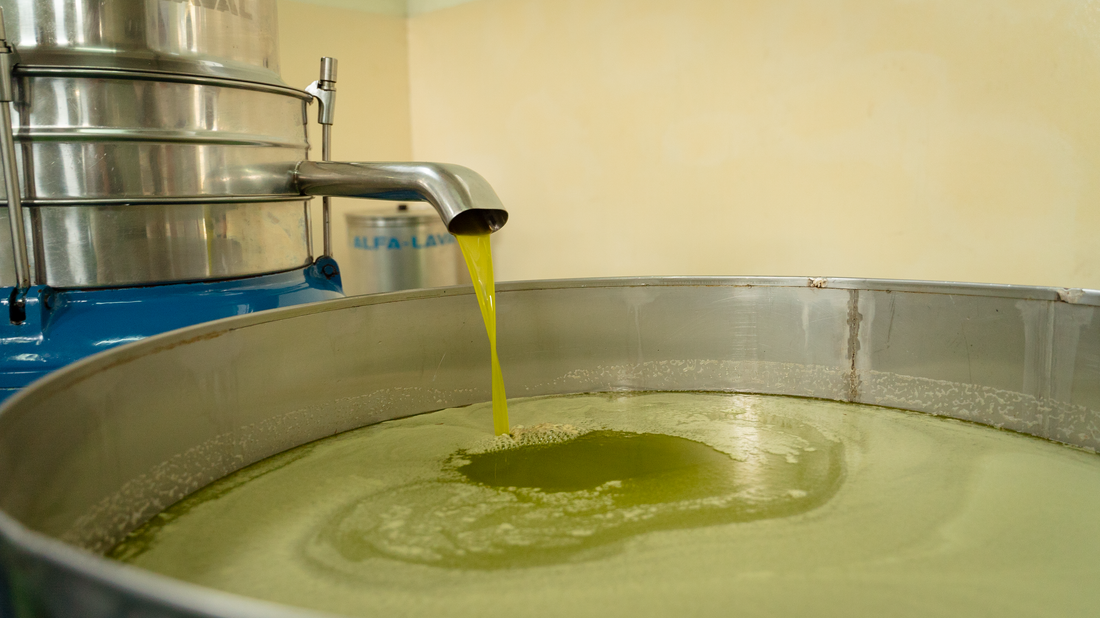Oil plays a central role in cooking and brings a unique flavor to our dishes. Whether for frying, grilling or pan-frying, each oil has its own characteristics and benefits. There is a wide variety of oils, some from olive, sunflower, coconut, rapeseed, soy, peanut, sesame and even avocado. Each of these oils has specific attributes in terms of cooking temperature, flavor, saturated or unsaturated fat content, antioxidant properties and impact on cholesterol.
The role of oil in cooking
In cooking, oil has several uses. It allows you to cook and brown foods, whether vegetables, meat or fish. It also serves as a binder in sauces and vinaigrettes. Certain types of oils, such as extra-virgin olive oil and virgin coconut oil, are also used for their particular flavor. Finally, oils play an important role in diet. They are a valuable source of omega-3 and omega-6, antioxidants, vitamins E and K, and other essential nutrients. For example, canola oil is rich in linolenic acid, a type of omega-3, while olive oil is rich in oleic acid, a monounsaturated fat beneficial for cardiovascular health.
Considerations for Choosing the Right Cooking Oil
Choosing the best oil for cooking can be a daunting task given the myriad of options available. Cooking oils vary in nutritional composition, flavor and heat resistance. Olive, sunflower, coconut, canola, avocado, palm, rapeseed, soybean, peanut and sesame oils are among the most popular. The choice of cooking oil must take into account the type of cooking (frying, grilling), the desired flavor, the nutritional value, and above all, heat stability.
Factors to Consider When Choosing Cooking Oil
The choice of cooking oil should not only be based on taste, but also on dietary factors. The fats contained in oil, whether saturated, unsaturated, monounsaturated or polyunsaturated, have an impact on cardiovascular health and cholesterol levels. Oils rich in omega-3 and omega-6 such as canola and soybean oil are beneficial for endurance and can help reduce inflammation. Other oils, like extra-virgin olive oil and avocado oil, contain antioxidants and vitamins like vitamin E and vitamin K, which are essential for overall health. It is also crucial to check whether the oil is refined or unrefined, organic or not, hydrogenated or not, as this can affect its quality and nutritional value.
Understanding the Smoke Point of Oil
An oil's smoke point, which is the temperature at which it begins to smoke and break down, is a crucial factor when choosing oil for cooking. Oils with a high smoke point, such as sunflower, peanut and avocado oil, are ideal for frying and cooking at high temperatures. Conversely, oils with a low smoke point, such as extra-virgin olive oil , are better suited for cooking at low temperatures or for use in salad dressings and sauces. It is important to note that cooking an oil past its smoke point can result in the formation of toxic compounds and negatively affect the taste of your dishes.
Review of Different Cooking Oils
The quality of the oil used for cooking can greatly affect the flavor and nutritional properties of your dishes. Cooking oils differ in their fatty acid composition, smoke point and nutritional content. Among the different cooking oils, some are more recommended for health such as olive, grape seed and sunflower oil . These oils are rich in unsaturated fatty acids, omega-3 and omega-6, vitamins and antioxidants, the role of which is essential for maintaining good cardiovascular health.
Olive oil: benefits and uses
Olive oil, especially extra-virgin, is one of the best cooking oils. It is rich in oleic acid, a monounsaturated fatty acid that has beneficial effects on cholesterol. It also contains antioxidants and vitamin E which fight inflammation. Its distinct flavor enhances the flavor of vegetables and fish. However, its relatively low smoke temperature makes it less suitable for high temperature frying and grilling. It is best used for cooking at moderate temperatures or for seasoning dishes after cooking.
Grapeseed oil: benefits and uses
Grapeseed oil is another healthy alternative. It is rich in linoleic acid, an omega-6 polyunsaturated fatty acid, and contains a good amount of vitamin E. Its high smoke point makes it ideal for frying and cooking at high temperatures. In addition, its neutral taste does not alter the flavor of food. It is therefore versatile and can be used for cooking meats, vegetables or as a binder in vinaigrettes.
Sunflower oil: benefits and uses
Sunflower oil is also known for its benefits. It is rich in linoleic acid and vitamin E, just like grapeseed oil. Its high smoke point allows cooking at high temperatures without degrading its nutritional qualities. However, its high omega-6 content requires balancing it with sources of omega-3 to prevent the risk of inflammation. It is ideal for frying and cooking meats, fish and vegetables.
Recommendations for using oil in cooking
When it comes to cooking, the choice of oil is crucial to guarantee a healthy and balanced diet. It is important to consider different factors such as smoke point, fatty acid composition (saturated, unsaturated, monounsaturated and polyunsaturated), the presence of antioxidants and vitamins (Vitamin E and K), as well as the possible impact on cholesterol and inflammation. Oils from olive , sunflower, coconut, avocado, rapeseed, soy, peanut and sesame are commonly used in cooking. Each of these oils has its own advantages and disadvantages, and their use depends mainly on the type of cooking and the desired taste.
When to use a low smoke point oil
Oils with a low smoke point, such as extra-virgin olive oil and walnut oil, are ideal for low-temperature cooking or for use raw. They are often rich in omega-3 and omega-6 fatty acids, which are beneficial for cardiovascular health. Additionally, they contain antioxidants such as carotenoids and are generally cold pressed, which preserves their nutritional benefits. They are also ideal for salad dressings, for seasoning vegetables or for adding a rich, fruity flavor to dishes.
When to use a high smoke point oil
Oils with a high smoke point, like sunflower, soybean, canola, peanut, and avocado oil, are perfect for high-heat cooking like frying, grilling, or baking. They mainly contain monounsaturated and polyunsaturated fatty acids, which are good for the heart. These oils are often refined and deodorized, which increases their smoke point and reduces their flavor, making them more versatile in cooking. They are also lower in calories and more dietary, which is an advantage for those looking to maintain a balanced diet.
What is the best oil for cooking?
Choosing the ideal cooking oil can depend on many factors, including flavor, health and the type of cooking planned. Certain oils like olive oil and grapeseed oil stand out for their versatility and heat resistance, respectively. These two oils, among others, provide a balance between culinary and dietary considerations, providing health benefits while enhancing the flavor and texture of foods.
The versatility of olive oil
Olive oil, especially extra-virgin olive oil, is often praised for its versatility and health benefits. It is rich in monounsaturated fatty acids, particularly oleic acid, which can help reduce inflammation and cholesterol. Additionally, it is a source of antioxidants, including vitamin E and carotenoids, which may protect against cardiovascular disease. Its robust flavor complements a variety of foods well, from grilled vegetables to meats and fish. Although it is not ideal for high-heat frying due to its relatively low smoke point, it is excellent for stir-fries, grilling, and salad dressings.
The heat resistance of grapeseed oil
On the other hand, grapeseed oil is known for its high heat resistance. With a high smoke point, it is well suited for frying and other types of high temperature cooking. It is also rich in polyunsaturated fatty acids, including omega-6, as well as vitamin E. However, it has a higher content of omega-6 than omega-3, which may contribute to an inflammatory imbalance if it is not balanced by sources of omega-3. Still, it has a mild flavor that doesn't overpower dishes, making it useful for a variety of dishes, from stir-fries to baked goods. In short, the choice of cooking oil depends on your culinary and health needs and preferences. A variety of oils can complement your cooking, with each oil bringing its own unique benefits.










 lucangeli.it
lucangeli.it


